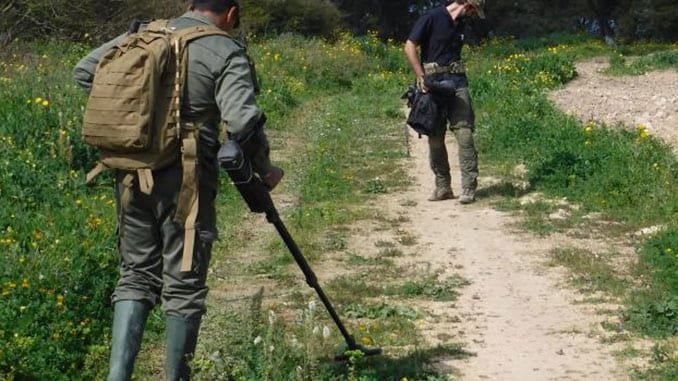Four explosive ordnance disposal (EOD) subject-matter experts from PAE Government Services Inc. recently conducted a pilot Improvised Explosive Device Defeat (IEDD) training course in support of the U.S. Army Africa (USARAF).
Students in the class are assigned to the 61st Engineer Group, Centre d’Excellence EOD Tunisien (CEET) in Tunisia.
This training is part of the Building Partner Capacity (BPC) program, which covers a broad set of missions, programs, activities and authorities intended to improve the ability of other nations to achieve security-oriented goals they share with the United States.
Since 2001, the U.S. government has increasingly prioritized efforts to build foreign security forces—particularly in weak and failing states—to advance U.S. national security objectives. Among other efforts under BPC, the U.S. Army and PAE mentor, advise and train indigenous forces.
PAE Instructors worked with military personnel from USARAF and military trainers from the 744th Ordnance Company (EOD), Fort Campbell, Kentucky, on the pilot training course.
The course was designed to increase C-IED capability and Tunisian Army’s engineer school; improve operational capacity to counter IED threats in Northwest Africa; and enhance the U.S. Africa Command (USAFRICOM) partnership with Tunisia.
The PAE team supported USARAF and the onsite military team with curriculum development, course execution and final after actions data collection and reporting.
“This event was much different from our normal C-IED and EOD scripted training events,” said PAE EOD SME/Master Instructor Mike Hague. “Our goals during these missions are to present facts about the global and regional terrorist threats; facilitate open discussions about U.S. and partner nation tactics, techniques and procedures (TTPs); and provide practical exercises where students can hone their skills.”
The course curriculum was built from the ground up on a flexible model that could be readily scaled, adjusted and updated based on the training needed and IED threats of the requesting African nation.
The advanced technical nature of course content and practical exercises requires a team of operationally experienced EOD SMEs who are formally trained instructors and observer/controllers. The five members of the U.S. Army military training team and all PAE team members are current or former Joint Service EOD technicians.
Delivering bomb training in a foreign country to allied partners poses logistical and operational challenges not found when training U.S forces at home. The most obvious is the language barrier. Varying operational environments; student experience, training and education levels; and culture differences must also be accommodated when developing training. Logistics, customs rules and regulations, and resourcing can complicate delivery.
To support the training, PAE, Joint Improvised Threat Defeat Agency (JIDA) and USARAF built a robust IED training aid kit to enhance classroom lessons and FTXs. The kit provides students with current and relevant terrorist threat targets designed to challenge skills they learn during classroom and practical training.
To ensure a smooth start to the training, several PAE team members arrived in country a month ahead of the training start date to coordinate facilities/training areas, rental vehicles, lodging, and meet with 61st Engineer and CEET leadership.
Article adapted from original by PAE. Edited for length and format by CBRNE Central.


